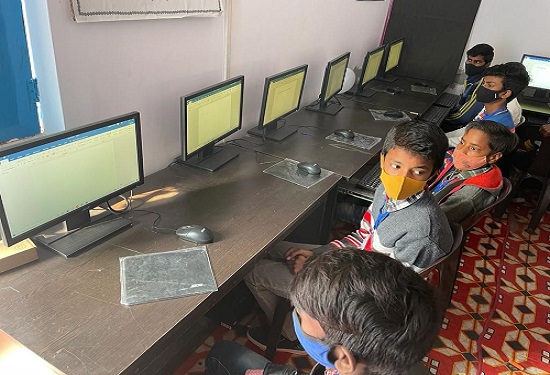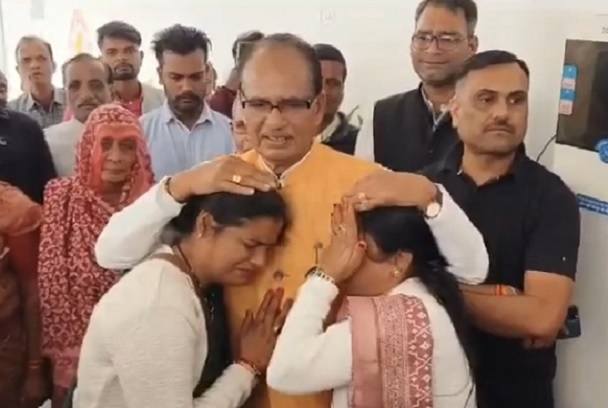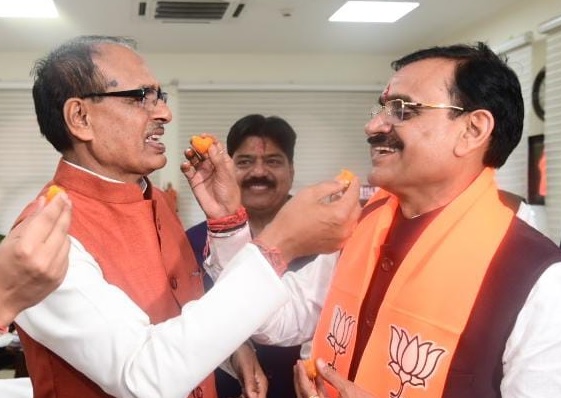CRY initiative helps bridge education gap for underprivileged children amidst pandemic

Senior Correspondent
NewsBits.in
NEW DELHI: When schools were shut and attending online classes was a distant dream for many children from underprivileged communities amidst COVID-19 pandemic, around 3000 volunteers as young as 14 years and as old as 50 years dedicated their days and nights to ensure learning for more than 4500 children. Out of these 3000 volunteers 600 were from Delhi alone.
The activity based learning model developed by Child Rights and You (CRY) and its volunteers helped children from underprivileged communities of 13 states who either had poor or no access to resources to join online classes.
CRY volunteers in collaboration with partner organizations, not only made devices like mobile phones, laptops, tablets available to conduct online classes but also ensured that as many children must attend classes’every day.
For example, despite residing in a conflict zone in Israel amidst unrelenting airstrikes and bombings, a CRY volunteer Jiya Udenia, 21, who was part of ideation team for online classes ensured that classes don’t stop even for a day.
Jiya who works with South Delhi Action Group of volunteers since, March 2021 used to conduct classes from bomb shelters. “Initially, I felt it is going to be really hard for me to take classes from the underground bunkers and in between deafening noises of bombardments and air strikes; but I chose not to give up,” she said.
On the other hand a group of Ph d scholars from Indian Institute of Technology (IIT), Roorkee arranged laptops through crowd funding for the children of a settlement in Majra village of Roorkee so that they can get access to online classes. They also introduced ‘One Child One Mentor’ programme during the pandemic so that the quality learning of every child joining online classes could be ensured.
Bineet Maurya, a PHD scholar from IIT Roorkee and mentorship head for the year 2020-21 said “one of the biggest challenges in online mode was the need of devices and ensuring that they are operated properly. Initially we arranged a mobile phone, later we bought two laptops through crowd funding within our institute and shifted on them".
"There were other challenges like convincing children to come to the classes everyday amidst the COVID-19 distress but we were able to successfully conduct the online classes for over 18 months. The ‘one child one mentor’ programme helped in tracing proper progress of each and every child”.
Online learning was ensured by a group of volunteers in remote areas of Badaun district of Uttar Pradesh as well. Around 62 children of two remote areas- GaiharBasti in Meer Saray and Rasoolpur Nagla village of Badaun are being provided with access to online classes run by volunteers since October 2020.
Despite poor connectivity issues and many other challenges, volunteers came forward with solutions for every obstacle in providing education to children from underprivileged communities of Badaun. “These two areas where we are conducting classes are remote villages where there are always connectivity issues.
To resolve this, we even approached various telecom companies so that we can provide a stable medium to these children to connect with us online every day. Despite difficulties and lack of resource we were determined to conduct classes, thus, children also started showing a lot of interest in our activity based learning. We have seen a lot of change in reading and writing skills of these children.
It gives us an extremely fulfilling experience”, said Naman Rai, a computer science engineer from Haridwar and a CRY volunteer. These volunteers have been tirelessly working day and night since pandemic hit the nation not only to provide online classesbut also to ensure relief material, vaccination awareness and sensitizing children and their families from underprivileged communities.
Explaining the essence of volunteerism Regional director, CRY – North, Soha Moitra said “CRY has always believed that volunteering is not just helping and supporting underserved communities. Rather it’s a mutual process. Volunteering gives you the opportunity to understand the society at large, especially the issues and challenges that underserved communities go through. It gives you the power to work on the problems in the society that has been displeasing you. It teaches you how even a small contribution to the society can lead to massive changes”.









